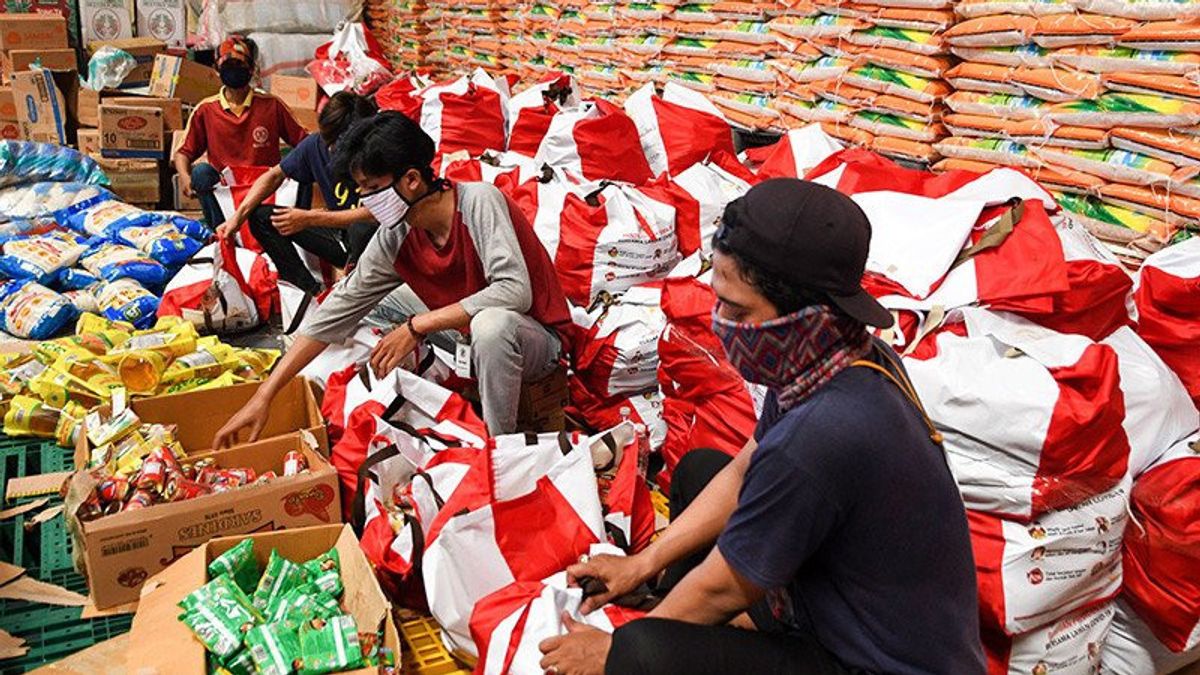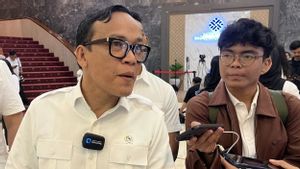JAKARTA - The government is optimistic that Indonesia's economic condition next year will grow positively.
The government also has a strategy to maintain resilience from the threat of a world economic recession in 2023, ranging from encouraging to maintaining people's purchasing power through the distribution of social assistance (bansos).
CORE Indonesia Executive Director Mohammad Faisal said Indonesia's economy is relatively resilient next year with a prediction of national economic growth of 4.5 to 5.0 percent.
"The main source of growth drivers comes from household consumption and investment which is estimated to be still quite strong," said Faisal in Jakarta, Thursday, December 29.
According to Faisal, household consumption next year is predicted to exceed pre-pandemic levels.
The prediction is based on a number of factors such as the relatively controlled pandemic, lower inflation rates, and the push for political spending ahead of the 2024 General Election.
"CORE Indonesia predicts inflation next year will range from 2 to 3 percent, below this year's inflation which is estimated to reach 5 to 6 percent," he said.
However, Faisal assessed that the government needs to pay attention to social assistance such as the Family Hope Program (PKH), the Smart Indonesia Card (KIP), and the Pre-Employment Card.
There is a potential for the distribution of social assistance and subsidies in 2023 to repeat the problems that occurred this year.
In addition, said Faisal, the Integrated Social Welfare Data (DTKS) is still not optimal with the discovery of duplicate data and unrenewable data.
"In the midst of future economic conditions that are predicted to be volatile, it is hoped that these various programs can be a cushion for many parties affected by economic instability in 2023," he said.
Data Synchronization
Meanwhile, Institute for Development of Economics and Finance (Indef) researcher Nailul Huda emphasized that the government should complete data first so that it can improve coordination and synergy from all parties, as well as orchestrate economic policies.
"First, yes, data first. Syncing data first is the most important thing," he said.
In addition, said Nailul, the government should also look for new markets for export-oriented domestic industries.
The reason is, the global recession is due to rising inflation in several central export destination countries such as America and the UK, some even have hyper-inflation, such as Argentina and Turkey.
"This can actually be anticipated. The government is looking for a new market for this export-oriented industry," he said.
For this reason, Nailul emphasized that the government should maintain people's purchasing power so that household consumption can still support the national economy.
One of them is to control inflation, maintain domestic commodity prices, and distribute social assistance.
"With household consumption that can still be maintained, it actually opens up opportunities for the government to be able to maintain economic growth above 5 percent," he concluded.
Previously, Coordinating Minister for Economic Affairs Airlangga Hartarto said the government had a strategy to maintain resilience from the threat of a world economic recession in 2023.
Such as keeping economic growth at 4.7 to 5.3 percent, encouraging investment, and anticipating global inflation, tightening monetary policy.
Then, the government will also maintain a trade balance surplus, as well as maintain people's purchasing power through the distribution of social assistance (bansos).
The chairman of Golkar also revealed that there are various valuable lessons to deal with the crisis during the pandemic. Mainly about coordination and close synergy from various parties.
"Indonesia is optimistic that economic growth will remain high, but must be vigilant and anticipate global challenges," explained Airlangga.
The English, Chinese, Japanese, Arabic, and French versions are automatically generated by the AI. So there may still be inaccuracies in translating, please always see Indonesian as our main language. (system supported by DigitalSiber.id)








